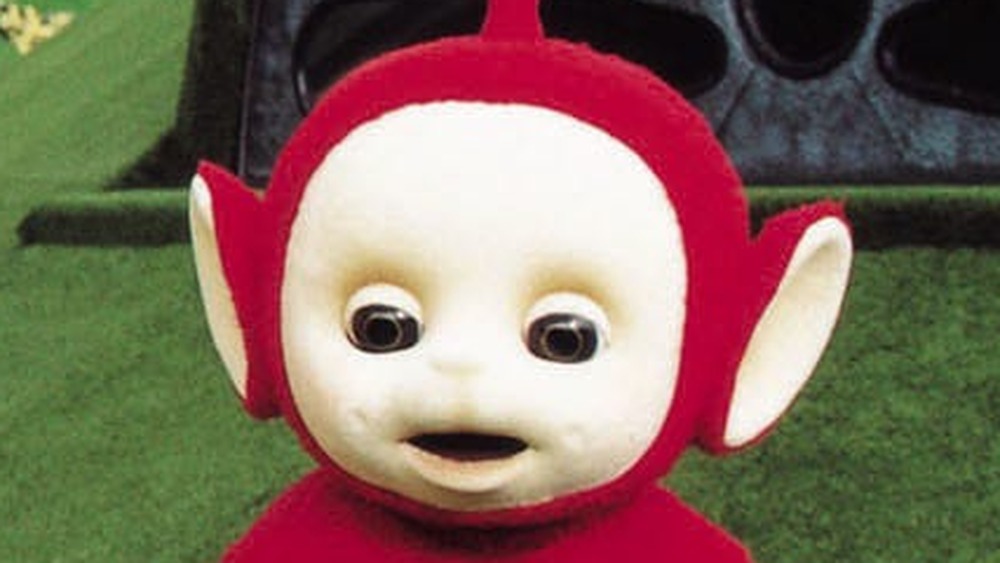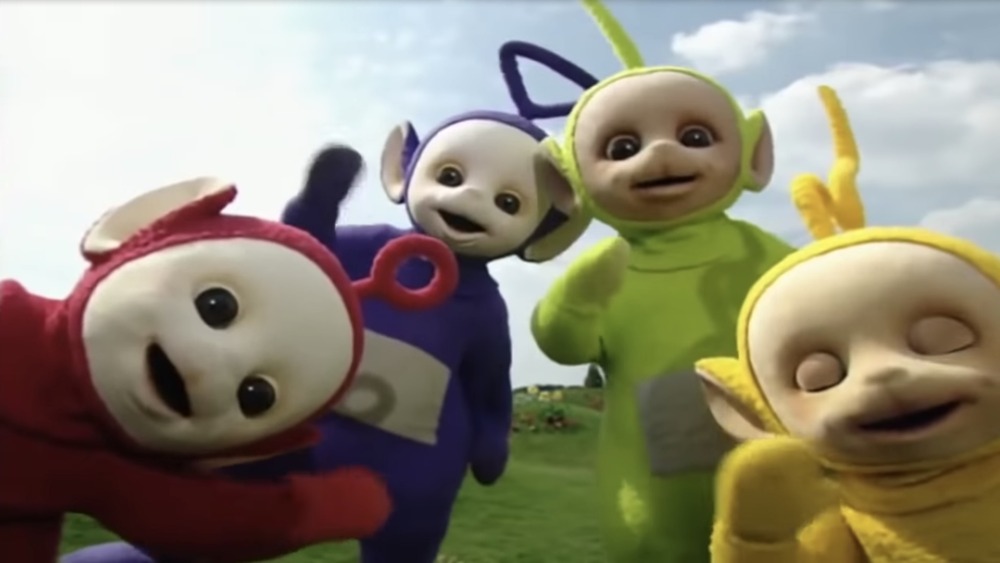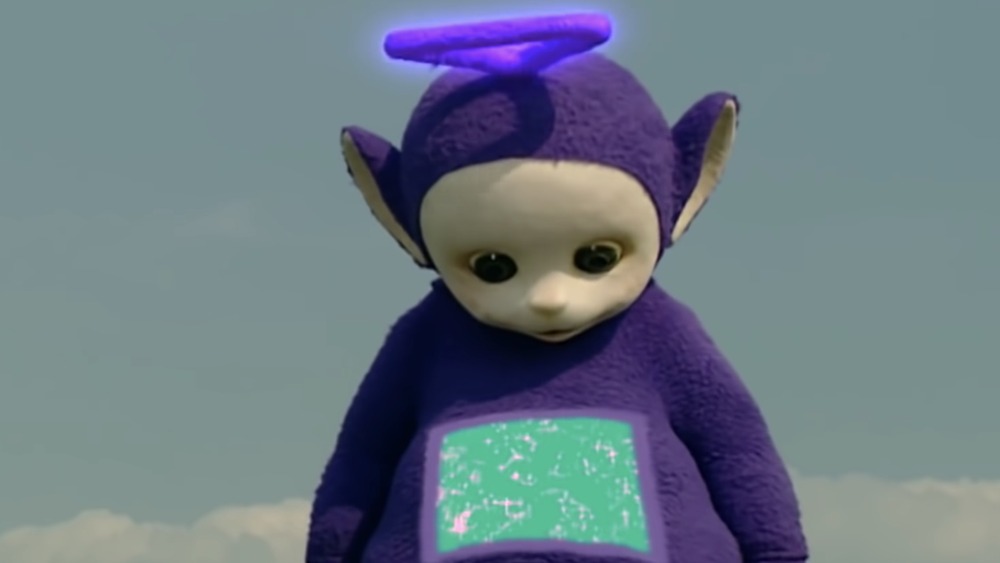The Real Reason The Teletubbies Disappeared
From 1997 to 2001, Teletubbies ruled the family-friendly airwaves. The British television show for children, featuring four brightly-colored, toddler-like creatures that had television screens built into their bellies and uniquely-shaped antennae for each character, caused a sensation that resulted in a huge amount of merchandise sales (almost $1.4 billion in three years, according to the book Innovation at the Edge by Tim Jones) and award nominations (plus two wins) from around the globe. Simon Shelton, who played Tinky Winky for much of the series' run, later even likened the experience to being a rock star. "We used to receive a lot of fan mail from kids and parents. I suppose we were a bit like the Beatles or the Take That of children's television," he told The Sun.
The show's characters were Tinky Winky, Laa-Laa, Dipsy, and Po. Episodes of the series about these cute little creatures featured plenty of repetition and simple plots for young learners, and were interspersed with real-life bits featuring actual children doing everyday things, like getting a parent ready for work. In the end, about 365 episodes of the show were aired in more than 120 countries (via NPR) and a song from the series, Teletubbies Say Eh-Oh! ended up a No. 1 single in December 1997. But why did the Teletubbies disappear?
For some reason, Teletubbies was steeped in controversy
Teletubbies was seemingly cute and innocent, featuring a baby-faced sun and taking place in an idyllic green land "over the hills and far away," as the narration states. But its innocence was so very sweet (Slate called it "so harmless it was almost a parody of children's television") that it somehow veered into creepy — enough so that conspiracies started popping up around the series. The children's show definitely had a dark side.
For one thing, it became controversial immediately because it encouraged parents to put their children in front of the TV at 12 months of age (via Current). In another early incident, the original actor playing Tinky WInky was fired after the first run of episodes, for reasons unclear — apparently, executives had issues with comedian Dave Thompson's interpretation of the role, Independent reported. He was replaced by the late Simon Shelton. Teletubbies even generated real-life drama surrounding its toys, as when the talking Po stuffed toy offended buyers (via the Associated Press) by saying a nonsensical word that some customers sounded like a derogative word for gay people, which Po uses when riding a scooter. Also, televangelist Jerry Falwell interpreted purple Tinky Winky as being gay, causing a firestorm of controversy in 1999 and calls to cancel the show from some quarters, according to Sydney Morning Herald.
Episodes of Teletubbies were even taken off air. Norway banned the show for its power to attract infants, The Washington Post noted. One sketch, "The Lion and the Bear," which first appeared in the episode "Asian Storyteller (The Fox)" was considered inappropriate for 1-4 year olds, as explained by Will Do Art for Food, due to its nightmarish music and visuals, and banned in several countries. Later, it was edited to be more child-friendly.
The show ended in 2001 but the Teletubbies never truly disappeared
While some credit Falwell's anti-LGBTQ+ comments (and other criticism of the show) with the downfall of Teletubbies, the show continued production for several years after he first started drawing attention to Tiny Winky's purported gender identity, purse-carrying habit, and subversively-shaped antenna. There is no evidence that conservative outcry caused the Teletubbies to end its run. More likely, it's just that after 365 episodes, Ragdoll Productions may have simply felt it was time to quit.
In reality, the show never truly disappeared. First, it was followed up in 2002 by Teletubbies Everywhere, which aired for a couple of seasons on the BBC's preschool channel CBeebies. Even after the original series was cancelled in 2001, reruns continued over a decade afterward, according to The Guardian. Teletubbies continued to be talked about and watched online, too. On the show's 10th anniversary in 2007, the Teletubbies received the keys to the city in a New York ceremony (via Reuters).
That year, a remake using CGI (as compared to being filmed in a field in Warwickshire) aired from DHX Media, after the original creator Ann Wood sold them the rights in 2013 (via BBC News). The new Teletubbies ran through 2018. And it introduced the world to the Tiddlytubbies, which are baby Teletubbies. So, if you think the Teletubbies disappeared, you might just be running in the wrong circles — they're easy to find and consume, even though it's been 20 years since the series ended.


